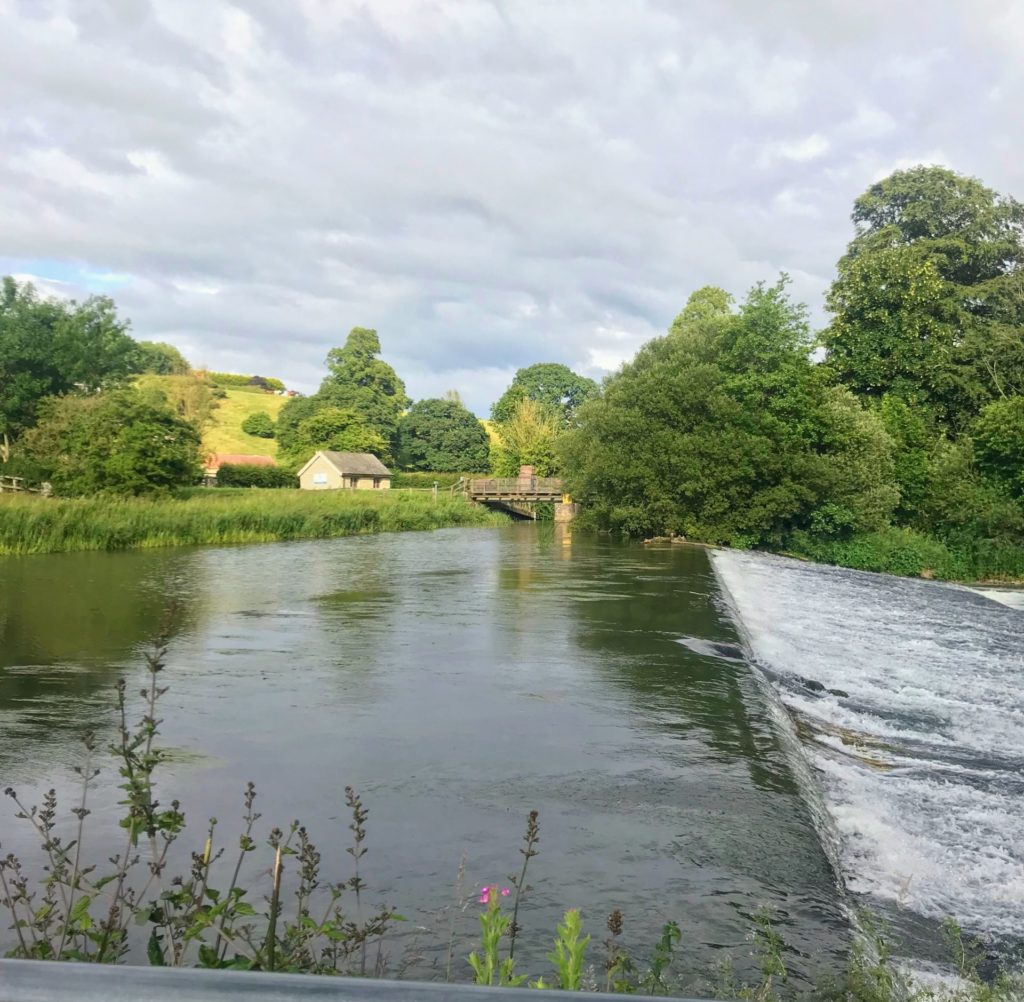How the UK's rivers are being overlooked and why we need to fix them

The New Scientist interviewed Professor Joseph Holden on the work of the NERC Freshwater Quality Programme. The article published on 2 April 2023 is added below, with PDF version here: New Scientist
The UK's rivers are in a shocking state, which could get worse with climate change and ongoing pollution. Researcher Joseph Holden at the University of Leeds is digging into these key issues.
By Jason Arunn Murugesu
Sewage, slurry and silage are affecting the ecological health of the UK’s rivers. Repairing and restoring these waterways is important for everything from biodiversity to our wellbeing.
Joseph Holden is the director of the water research centre at the University of Leeds, UK, and one of the programme directors of the UK Research and Innovation's (UKRI) new project looking into river pollution. He is trying to better understand some of the uncertainties in river science and how we may be able to solve some of the issues the UK’s rivers are facing.
What are some of the biggest unknowns in river science?
Joseph Holden: One is the fact that we don’t really know how climate change will affect river quality. More periods of drought in the UK could lead to higher concentrations of pollutants in rivers as they contain less water to dilute the pollutants.
Another example is the fact that we don’t know how some of the features in our landscapes influence water quality. Take animals grazing on a farm and the pollutants that are produced from their faecal matter. Some of these pollutants may end up in a nearby river. However, the extent of this issue depends on which part of the country that river is in.
Depending on how porous or wet the ground is, which is influenced by the make-up of the soil and the local climate, rainwater may wash surface contaminants on the soil into nearby rivers. In other parts of the UK, however, more of the water may infiltrate deep into the soil.
Many of the existing policies around fertiliser or pesticide use on farms are in place to minimise water pollution, but are designed for lowland environments. We don’t really know how suitable these are in the hills, where soils tend to be thinner and pollutants could run down into rivers. If we don’t know how the landscape affects these issues in more detail, we can’t direct our water management policies very well.
What are some overlooked ways to fix the UK's rivers?
Newspaper reports sometimes make it seem that cutting the amount of sewage entering our rivers during rainstorms is the only solution. This is indeed a problem, as our Victorian-era sewage systems combine rainwater and wastewater into one pipe. Between 2020 and 2021, raw sewage was dumped into rivers and oceans in the UK 770,000 times. One partial solution could be collecting more rainwater before it enters pipes to prevent them overflowing.
But there are lots of other things we can be doing better. For example, we need to make sure we’re applying the correct amount of fertiliser on to soil, rather than spraying it everywhere, and should match the fertiliser to that exact soil type and crop so that there’s less runoff into our waters.
We also need to devise better ways to monitor UK rivers, especially for contaminants such as pharmaceuticals that enter our rivers through wastewater systems. Our water quality monitoring programme is inadequate. Not enough rivers are being monitored and those that are have an inadequate intensity of sampling along each site of the river to gauge its water quality and determine if policies are working or not.
In England, 130 sites in rivers are monitored for their water quality once a month. The Water Expert Advisory group has said that ideally 1000 water bodies, including rivers, would be monitored for pollutants every day across the UK.
How long do you think it will take to fix the UK's rivers?
Some problems could take many decades. I don’t want to be all doom and gloom, but I think that’s where public campaign groups and the government need to think about managing their expectations. Look at certain metal contaminants in our soils and rivers. We’ve got a legacy of hundreds of years of heavy metal mining. We can invest today in stopping more pollutants coming out from old mines, but cleaning rivers doesn’t mean we’re going into the river and removing pollutants.
Instead, the question is: how long will it take for the pollutants that are already in the river to be flushed out into the ocean or buried deep into the sediment where they don’t affect water quality? That could take decades, even once we stop the leaking of pollutants from metal mining.
What is the programme you are working on?
I’m co-leading a four-year, £8.4-million ($10.3-million) Natural Environment Research Council programme with Pippa Chapman into how water and soil pollution impacts UK rivers. Overall, what we’re trying to do is figure out: how do pollutants move from their source to the land and then into rivers? How do these pollutants break down in water and how do they interact with each other? How do these byproducts affect the local ecology?
There are lots of big questions around this that we need to answer, but by doing so we’ll be in a much better position to determine a wider range of solutions that will help us improve UK freshwater quality.
